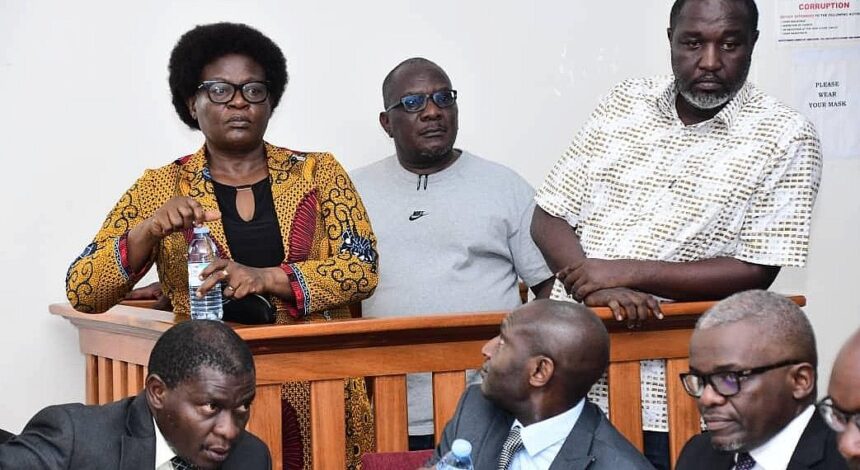Former top officials of Kampala Capital City Authority (KCCA) were granted bail by the Kasangati Chief Magistrate’s Court after two weeks in Luzira Prison. The officials face serious charges of manslaughter and negligence stemming from the Kiteezi landfill collapse, which claimed over 35 lives.
Dorothy Kisaka, the former Executive Director of KCCA, along with Engineer David Luyimbazi, the former Deputy Executive Director, and Dr. Daniel Okello, the ex-Director of Public Health and Environment, appeared before Chief Magistrate Beatrice Kainza on October 4, 2024. The three were each granted bail set at UGX 5 million cash, while their sureties faced a UGX 100 million non-cash bond. They are prohibited from leaving the country and warned against tampering with witnesses or ongoing investigations, as any breach could revoke their bail.
The charges stem from an August 10, 2024, tragedy at the Kiteezi landfill, where alleged negligence in its management led to a massive collapse that killed over 35 people, destroyed property, and displaced numerous families.
Prosecutors argued that between July 2020 and August 2024, the officials had failed in their duty to maintain safety at the landfill, leading to the fatal incident. Despite the severity of the charges, Kisaka, Luyimbazi, and Okello maintained their plea of not guilty.
Public reaction to the bail decision has been polarized. Many Ugandans expressed outrage on social media, questioning why the officials were granted bail despite the grave consequences of the landfill collapse. “After causing the deaths of over 40 people, you still grant them bail, yet innocent people are rotting inside prison cells,” tweeted Ramadhan Edrisa, echoing the sentiments of numerous others.
The Kiteezi disaster led to the dismissal of these officials by President Museveni following an Inspector General of Government (IGG) report, which condemned the lack of oversight and safety protocols at the landfill. Further investigations are ongoing, with the police conducting home searches for additional evidence that could implicate others connected to the case.
This case has reignited public debates on accountability and justice in Uganda. While the legal process unfolds, many citizens continue to demand stricter accountability measures to prevent similar tragedies. The high-profile trial of the former KCCA officials could set a precedent on how the country handles cases involving public safety, official negligence, and loss of life.







